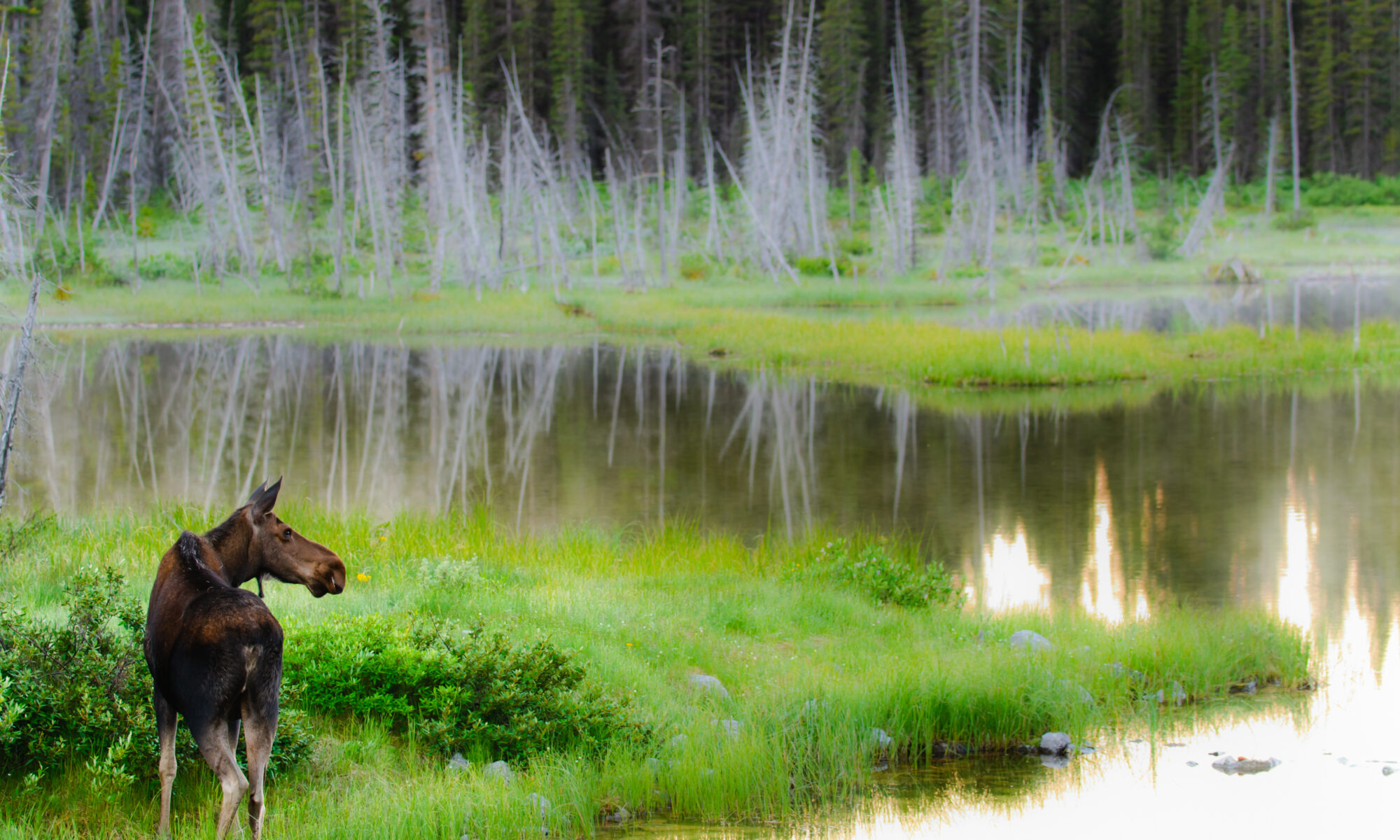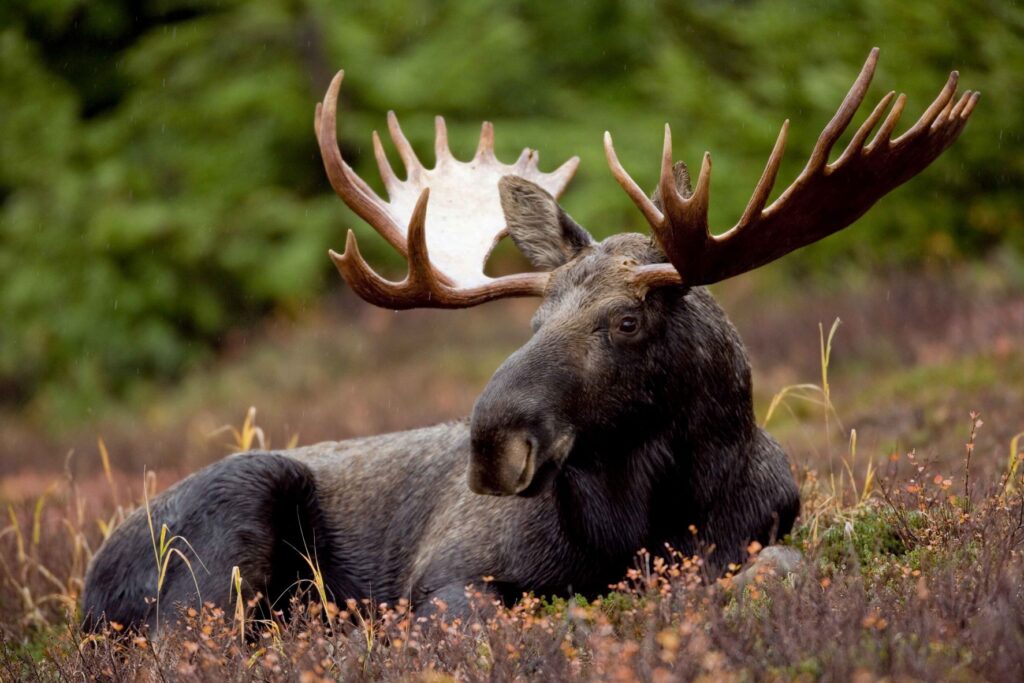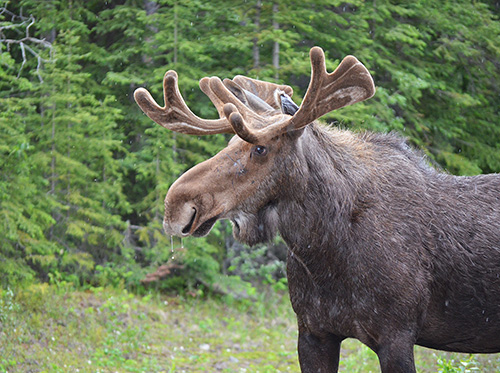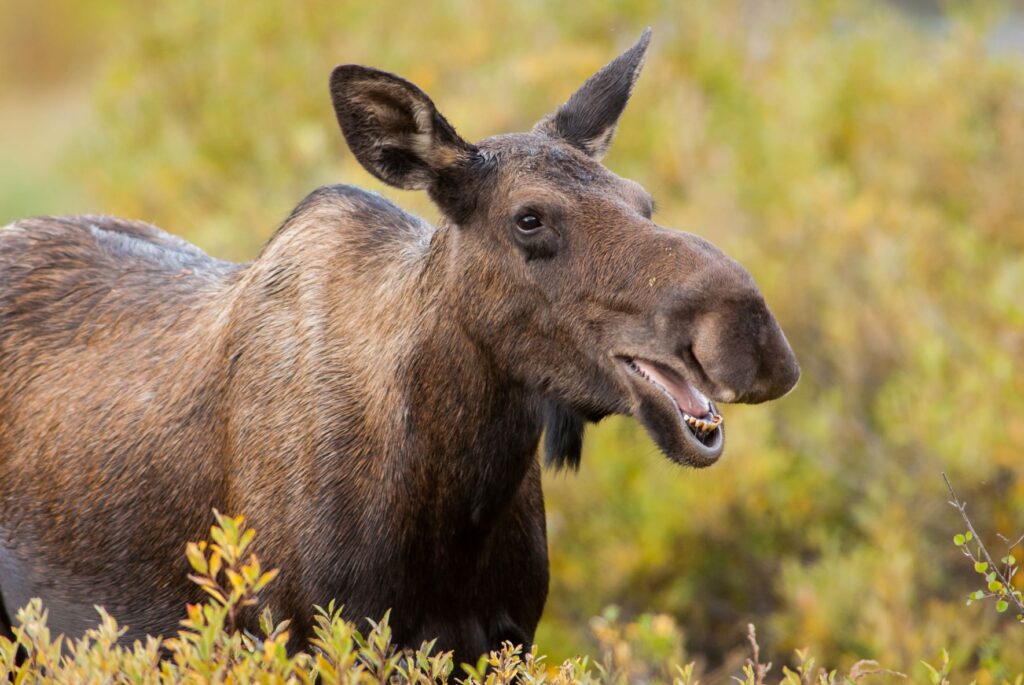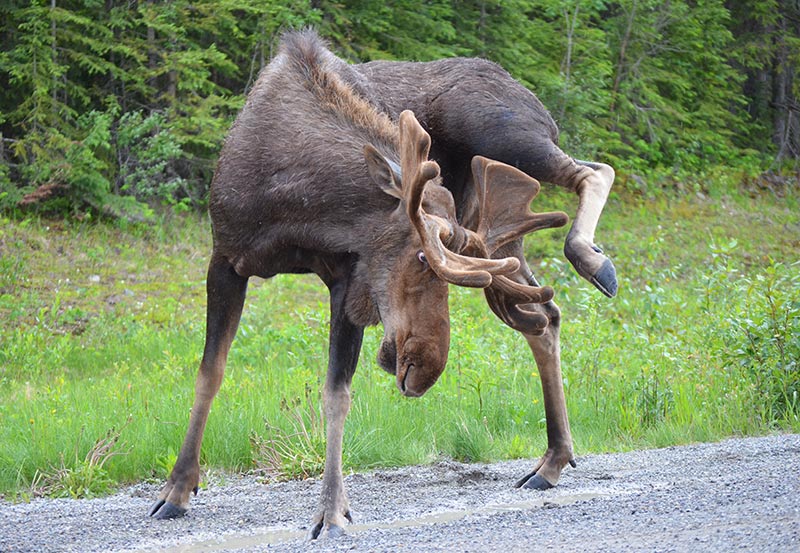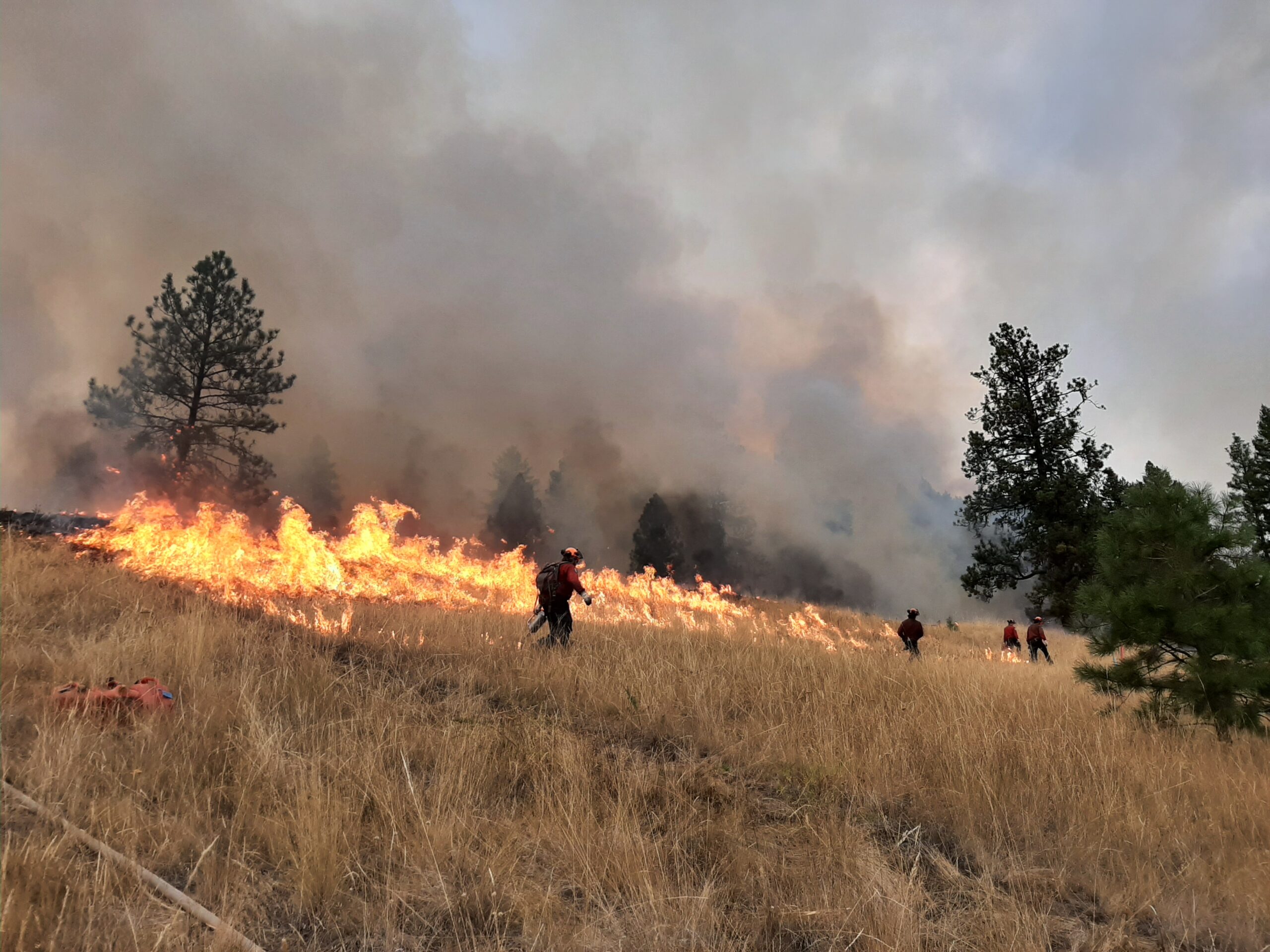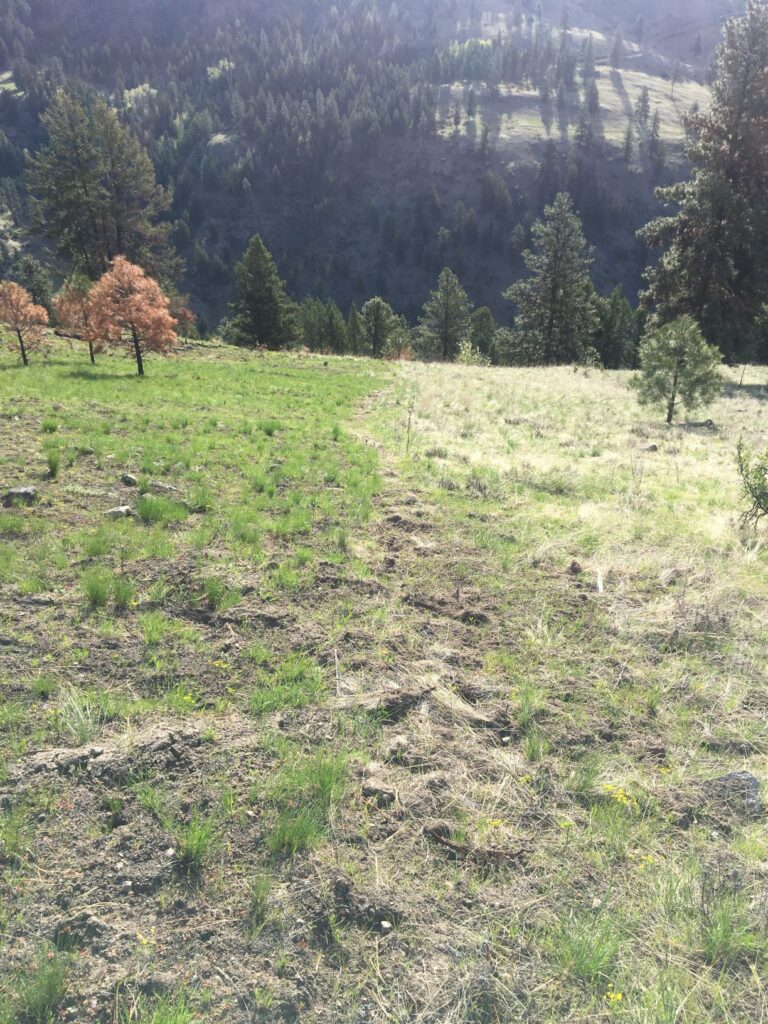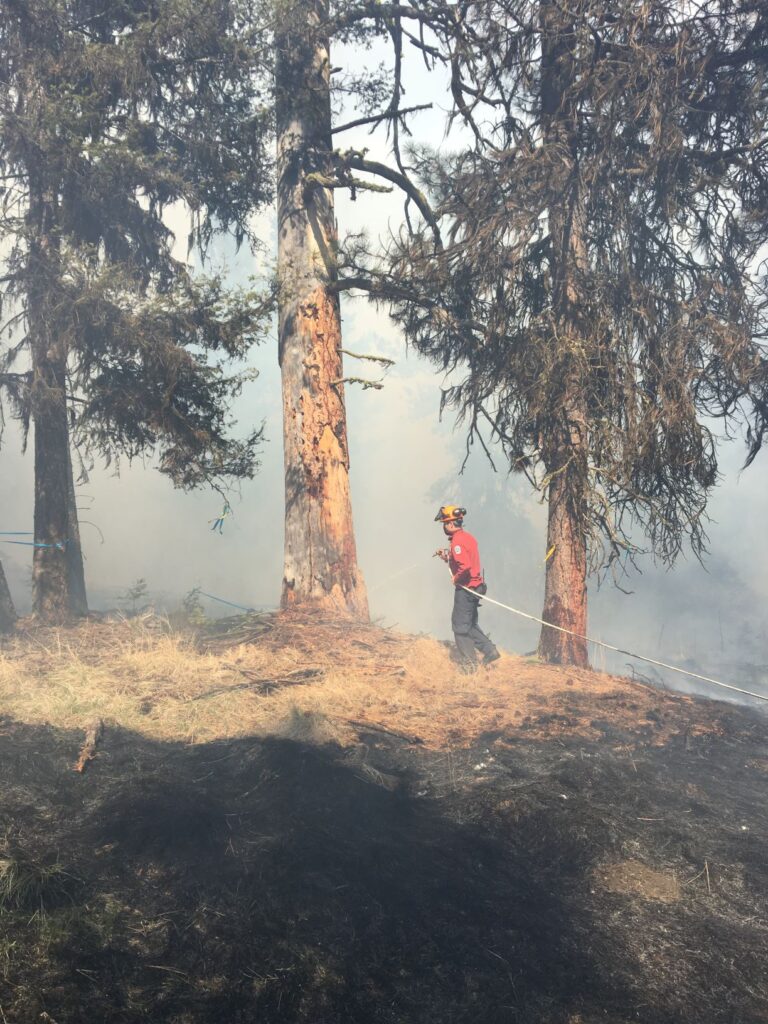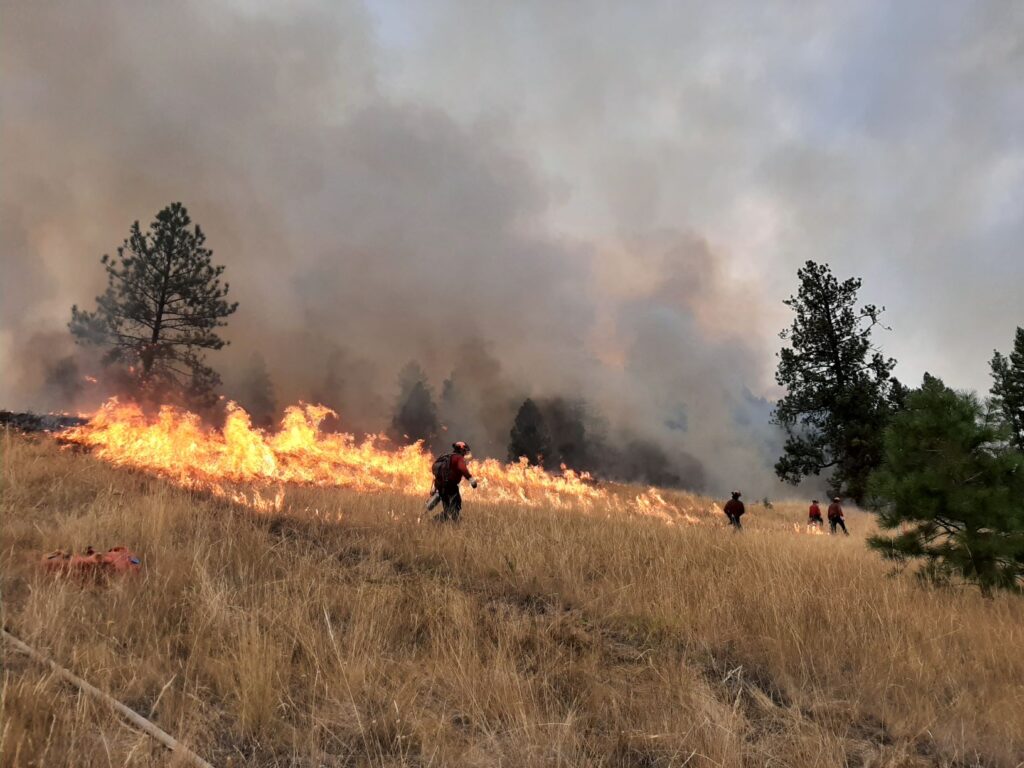Smithers, B.C.: for 40 years, the Habitat Conservation Trust Foundation (HCTF) has helped fund conservation groups, government, Indigenous Nations, and local communities to implement projects that protect B.C.’s wildlife, freshwater fish, and the habitats they need to survive and thrive. This year, HCTF awarded $9.3 million in funding for 175 individual conservation projects throughout British Columbia.
HCTF’s CEO Dan Buffett is pleased to report that the 2021/22 grant season represents the Foundation’s highest record annual investment and reflects the financial contributions and hard work of many British Columbians that fund and implement these projects. To date, HCTF has funded 3,230 conservation projects and granted over $195 million in funds across the length and breadth of this ecologically diverse province.
One such project is led by the Bulkley Valley Rod and Gun Club. The Lake Babine Area Moose Winter Range Enhancement project received $107,847 in funding and will increase winter moose browse supply and availability near Smithers, B.C.
In many parts of northwestern B.C., moose populations have been in decline due to several cumulative factors, and the loss of quality moose forage supply is directly correlated to declining moose numbers. To address this issue, a percentage of Scouler’s Willow has been manually felled and “hinged” to improve stump and tree sprouting while also providing on-the-ground forage for moose. This treatment increases the amount of winter food currently available and improves the growth of the plants for years to come. The unroaded treatment area is connected to other valuable winter range areas for moose and supports fire risk reduction objectives for the Lake Babine Nation. In addition, a follow up study will guide future activities in terms of seasonal timing and methodology.
“This work would not be possible without the financial contribution of HCTF, the Forest Enhancement Society of BC (FESBC), and the Forest Employment Program,” said project manager, Len Vanderstar. “720 hectares of Scouler’s Willow sites have been treated within the Lake Babine area this year alone and is expected to enhance forage supply of treated vegetation by up to four times for up to 15 to 20 years.”
Other HCTF-funded projects taking place in the Skeena Region include:
- $50,000 to restore and replant Whitebark Pine Ecosystems, co-funded by FESBC.
- $53,603 to restore fish passages at road, rail, and stream crossings along the Bulkley River Watershed.
- $34,000 to research Mountain Goat range boundaries, habitat selection, and population dynamics, co-funded by FESBC.
- $42,000 to assess species composition, distribution, and exploitation rate of Bull Trout and Dolly Varden in both the Nass and middle Skeena Rivers.
- $24,062 for a Taku River Tlingit First Nation’s led initiative, monitoring habitat use, migration and health of Tawéi (Tlingit word for thinhorn sheep) near Atlin.
Funding and support for these projects and others across the province come from a wide variety of sources including public groups such as the British Columbia Wildlife Federation (BCWF), partner organizations like FESBC, provincial government contributions, court fines, and endowments. A significant source of funding comes from the conservation surcharge paid by B.C.’s anglers, hunters, trappers, and guide outfitters.
“Over 40 years ago, a group of concerned hunters and anglers, lobbied for a surcharge on hunting and fishing licenses to fund wildlife and fish habitat improvement projects throughout the province,” said BCWF president Chuck Zuckerman. “The result of this impassioned call from B.C.’s hunters, anglers, trappers and sport shooters formed a new fund in 1981 that subsequently evolved into the Habitat Conservation Trust Foundation.”
Steve Kozuki, executive director of FESBC, has been pleased to be a partner with HCTF.
“We are proud to partner with HCTF and local experts on the ground throughout British Columbia to improve wildlife habitat,” said Kozuki. “HCTF combines wildlife biology expertise with their excellent management of funds to deliver outstanding benefits for wildlife. With all the pressures on the land base, the good work HCTF does is more important than ever.”
Each project funded by HCTF goes through a multi-level, objective and technical review process prior to final Board review and decision. HCTF’s Board of Directors ensure that species important to B.C. anglers and hunters are supported but also place a great deal of importance on conserving whole ecosystems, species-at-risk, and investing in environmental education across the province.
To see the complete list of HCTF funded projects or explore the conservation work being done near you, view the 2021-22 Approved Project List.
For Interviews:
Habitat Conservation Trust Foundation
Craig Doucette, Communications Officer |
Direct: 250 940 3012 | Toll-free: 1 800 387 9853 ext. 212 Craig.Doucette@hctf.ca
Forest Enhancement Society of BC
Aleece Laird, Communications Liaison
Direct: 250 574 0221 | communications@fesbc.ca

HCTF QUICK FACTS
It is the mission of HCTF to improve the conservation outcomes of B.C.’s fish and wildlife, and the habitats in which they live. We make a difference by funding conservation projects and by educating and engaging the public about B.C.’s natural assets. 2021 marks HCTF’s 40th anniversary of helping conservation groups and individuals secure funding for conservation projects and providing education to the general public about B.C.’s important natural assets. Since 1981, HCTF has provided over $195 million in grants for 3,230 conservation projects across B.C. HCTF began as an initiative by B.C. anglers, hunters, trappers, and guide outfitters.

